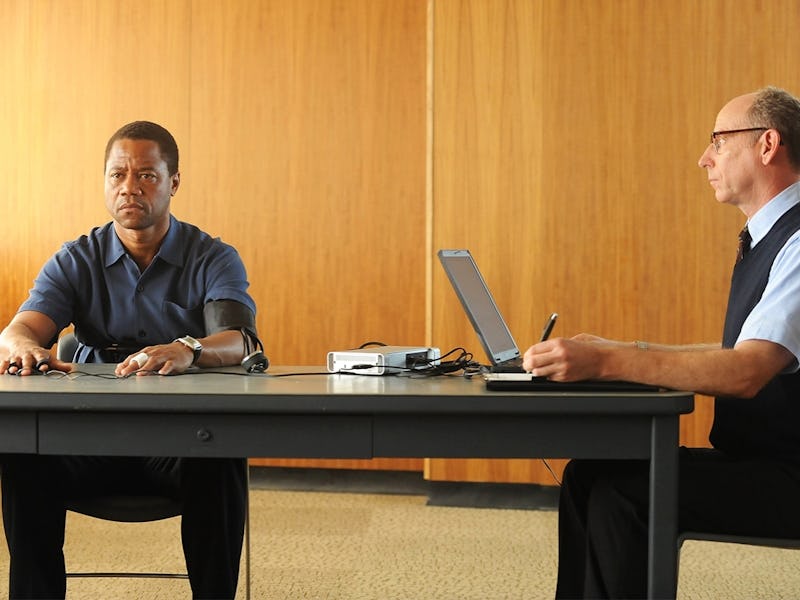Tired People Are Much, Much More Likely to Sign a False Confession
A study linking physical exhaustion to false confessions calls the justice system's interrogation practices into question.

In the pilot for American Crime Story, Cuba Gooding Jr.’s O.J. Simpson takes a lie detector test, which he fails with a score of -24. He insists he was tired and distraught — “Of course I failed it!” he exclaims, “I’m so emotional!” — but his lawyers nevertheless start preparing his insanity plea. But a new study by Michigan State University researchers finds that sleep-deprived people are a lot more likely to admit to false confessions. Because when a person is physically exhausted, how much can you trust the veracity of their testimony?
Published today in Proceedings of the National Academy of Sciences, the study finds that participants who had been awake for 24 hours were 4.5 times more likely to sign a false confession than those who’d gotten 8 hours of sleep. The burden of physical and mental exhaustion, it seems, is enough to force people to admit to doing things they haven’t actually done.
In this case, lack of sleep led participants to admit to hitting the “escape” key during a series of computer tests after being told not to. Fifty percent of the sleep-deprived participants signed off on a statement falsely alleging they had pressed it, whereas only 18 percent of well-rested individuals followed suit.
“This is the first direct evidence that sleep deprivation increases the likelihood that a person will falsely confess to wrongdoing that never occurred,” said lead author Kimberly M. Fenn, Ph.D., in a release. “It’s a crucial first step toward understanding the role of sleep deprivation in false confessions and, in turn, raises complex questions about the use of sleep deprivation in the interrogation of innocent and guilty suspects.”
The National Registry of Exonerations, a University of Michigan project seeking to “un-make” murderers, reports that 38 percent of the 58 innocent people convicted of homicide last year falsely confessed to their crime. Whether sleep deprivation was a factor in these confessions is unclear — until now, it simply hadn’t been measured.
The CIA’s use of sleep deprivation as an “enhanced interrogation technique”, however, has already been criticized for its inhumanity and questioned about its efficacy. What truth are they trying to get at, exactly? While the PNAS study’s findings call our legal practices into question, they also provide a scientific basis for old manipulation strategies.
Whether O.J.’s conscience actually kept him up at night will forever remain a mystery, but what is clear is the fallibility of the strategies the justice system used to extract his — or anyone’s — testimony. If we’re truly interested in extracting accurate statements, the authors point out, we should make a habit of measuring the sleepiness of individuals before they’re interrogated — and filming the entire process. This could grant judges and jury members potentially verdict-changing insight.